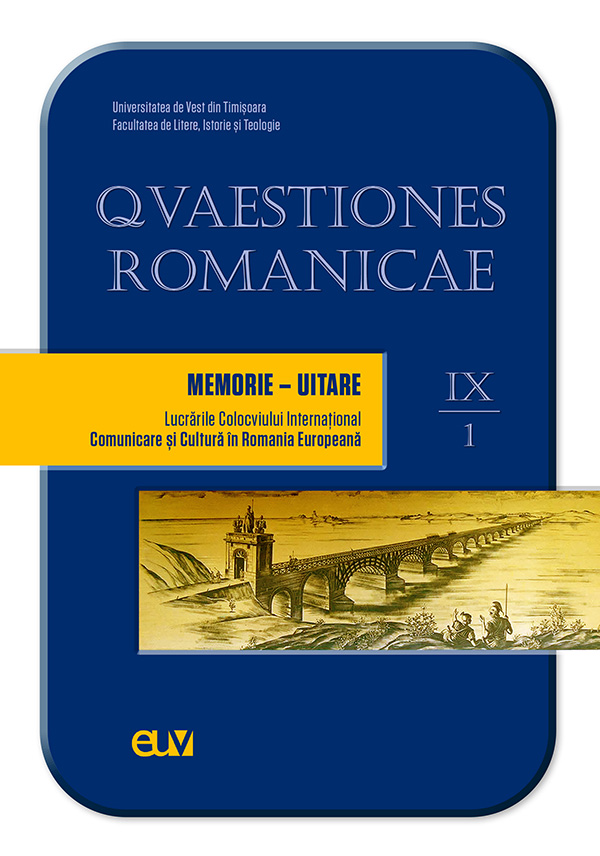Spațiul teatral românesc: o oază de teatru pentru mai multe limbi
Abstract: (Romanian theatrical space: an oasis of theatre for many languages) ”Theater” in Hungarian is called ”szinház”, which translates mot-á-mot as "house of colors". Over time, it has been observed that the theatrical encounters between the Romanian national character and that of the minorities – Hungarian, German or Jewish – have facilitated the birth of remarkable color mixtures for the Romanian theatrical space, with a power of impression and broadening expectation of the audience and the theater specialists, regardless of the language spoken. And yet, the minorities theatre has a major goal: to preserve the memory of traditions, of language, culture and identity. In the context of globalization, the intertwining of arts and languages, but also in the context of the danger of disappearance of identity as ethnicity, I want to understand the importance of the artistic tradition of theater in minority languages, the role of these theaters, the characteristics of the actor's art. The theatrical phenomenon in the Carpatho-Danubian space has the advantage of seeing expressions of art, culture and traditions of several coexisting nationalities. Language is not an obstacle, the common theatrical language being essential in the expression and cooperation between actors and directors that speak the same language: theatre. In theater we work with emotions, with gestures, with objects, with images. The fact that we have the chance of theaters of different language expression, that is in Romanian, German, Hungarian and Idish, is an advantage of the Romanian theatrical landscape.
Keywords: theatre, language, tradition, acting, cooperation.
Rezumat: „Teatru” în limba maghiară se spune „szinház”, care se traduce mot-á-mot prin „casa culorilor”. De-a lungul timpului s-a putut observa cum întâlnirile teatrale între caracterul naţional român şi cel al minorităților – maghiară, germană sau evreiescă – au facilitat naşterea unor amestecuri coloristice remarcabile pentru spațiul teatral din România, cu o putere de impresionare şi de lărgire a orizontului de aşteptare a publicului şi a oamenilor de teatru, indiferent de limba vorbită.Și totuși, teatrul minorităților are un obiectiv major: păstrarea memoriei identitare, de limbă, cultură și tradiții. În contextul globalizării, al întrepătrunderii artelor, al limbajelor, dar și al pericolului dispariţiei identităţii ca etnie, doresc să înțelegem importanța tradiţiei artistice a teatrului în limbile minorităților, rolul acestor teatre în fenomenul teatral și în identitatea comunităților, caracteristicile artei actorului în funcție de limba vorbită în relaţie cu teatrul românesc, fenomenul teatral din spațiul carpato-danubian având avantajul de a vedea exprimate arta, cultura şi tradiţiile a mai multor naţionalităţi conlocuitoare. Limba nu reprezintă un obstacol, esenţial fiind limbajul teatral comun, atunci când el există. În teatru se lucrează cu emoţii, cu gesturi, cu obiecte, cu imagini. Faptul că avem şansa unor teatre de expresie diferită, recte în în limba română și în limbi ale minorităților, este un avantaj al peisajului teatral românesc.
Cuvinte-cheie: teatru, limbă, tradiție, actorie, colaborare.
